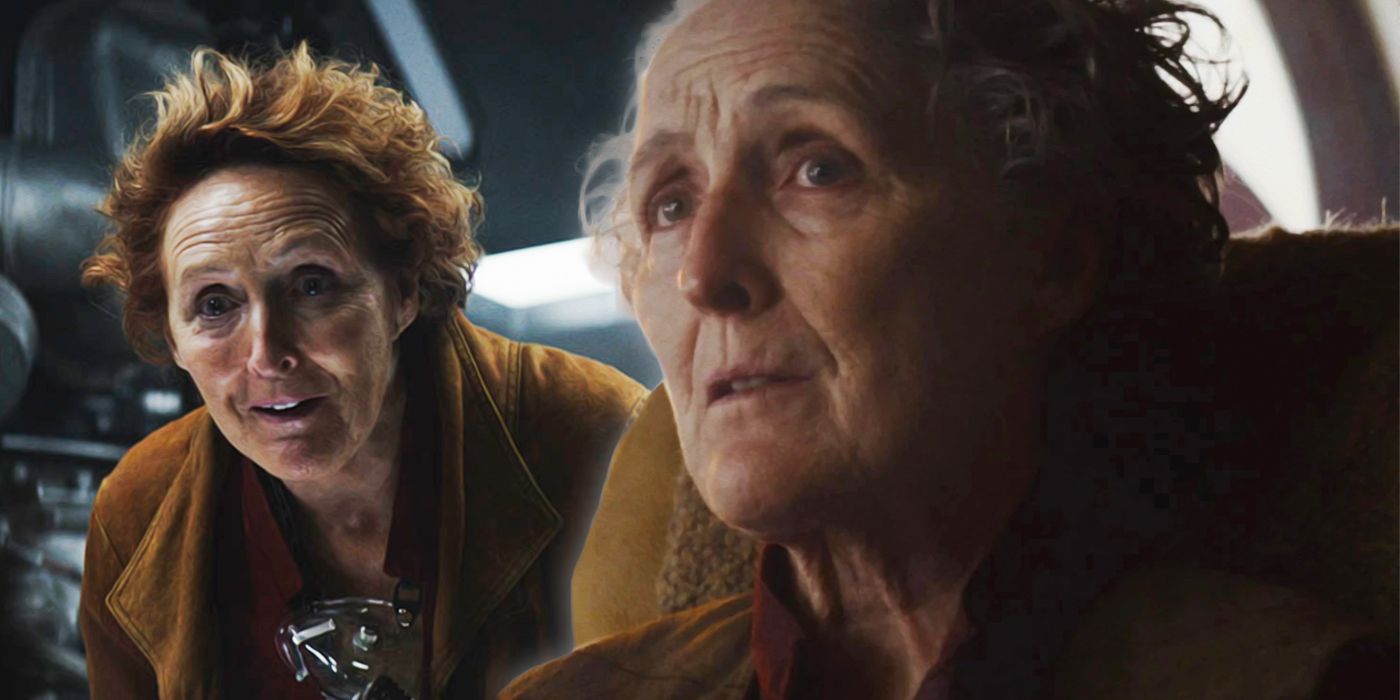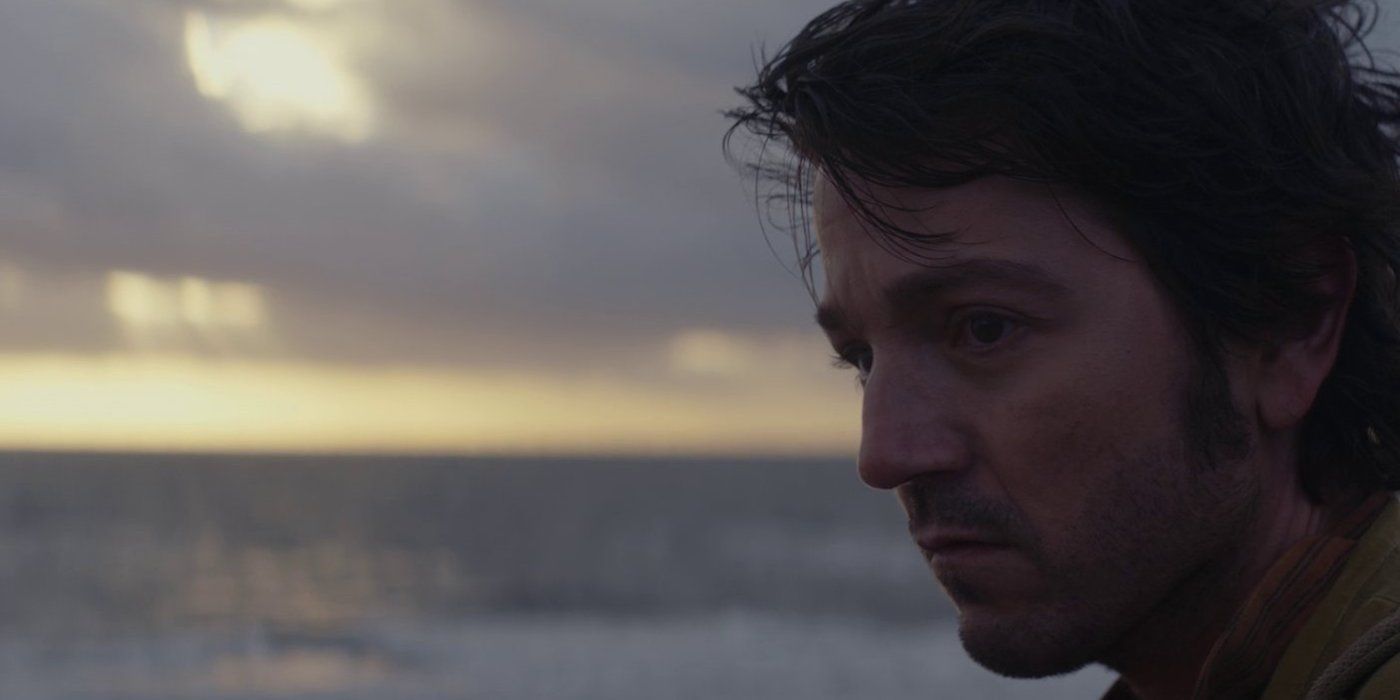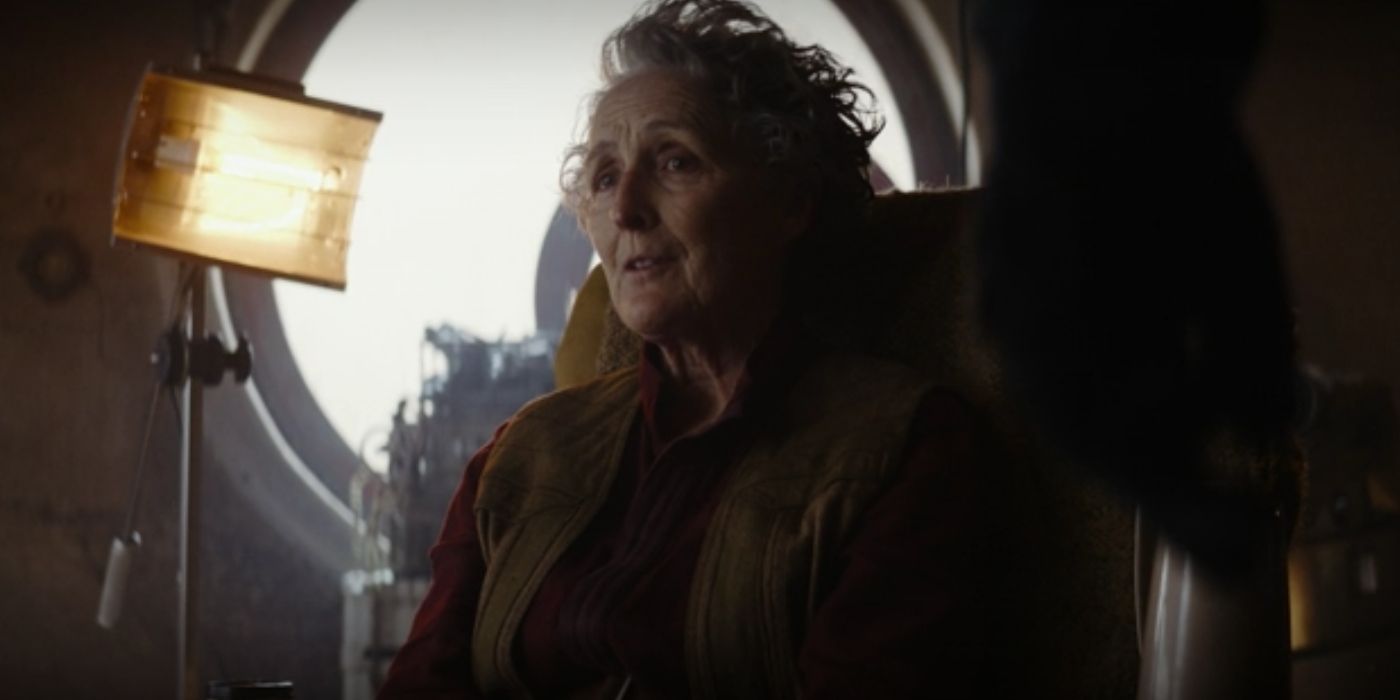The following contains spoilers for Andor Season 1, Episode 12, "Rix Road," now streaming on Disney+.
The inclusion of Fiona Shaw on Disney+'s Star Wars prequel series proved to be the best casting decision producers made, save for bringing back Genevieve O'Reilly as Mon Mothma. The Season 1 finale for Andor does a lot of things, including putting Maarva into the conversation for the Rebellion's most "important" hero.
In the grand scheme of the Galactic Civil War, the insurrection on Ferrix doesn't matter. The Empire, technically, "won" that fight. Even if it hadn't, give it a few space hours and a newly arrived legion of Stormtroopers would. Still, Maarva's posthumous holographic message of dissent represents a crucial cog in the machinery of the Force, specifically getting Cassian to that beach on Scarif so Luke and Leia can do the rest. All of Andor Season 1, but especially the finale, underscores how important people are to Ferrix. They know each other's names. They know each other's business. When the Empire arrived after Order 66, her husband was killed as an example. Maarva's memorial was an indictment of that murder and all the pain the Empire caused since. The only tragedy here is that she doesn't know it was her adopted son that inspired her act.
Maarva Andor Was a Mystery to Both Viewers and Cassian
In the flashback to Cassian's adoption by the Andors, Maarva indicates that the Republic will arrive at the planet and "massacre" the indigenous locals. Later in Season 1, she speaks sympathetically of the Separatists, who to the galaxy-at-large are still villains. So, it's unclear if Palpatine did have death squads or if Maarva was just repeating Count Dooku's anti-Republic propaganda. For much of the time viewers see Maarva, Shaw's playing her at the end of her life. Yet, in those flashbacks, she seems a fierce and vibrant woman.
On Ferrix she was involved in the community and elected president of the Daughters of Ferrix organization. Like the rest of the town, she kept her head down for most of her life. As she said, the Empire would show up, but they would always leave. When Cassian saw her for the last time she refused to leave Ferrix because the Aldhani heist made her believe in striking back against the devils who killed her Clem and the others. The episode almost played it as a tragic joke, that this elderly woman would think she could make a difference. Yet, each moment of rebellion matters in the larger fight.
Cassian is to blame, in a way, for Maarva's actions. Not because of Aldhani, but because he left her. He loved the woman he viewed as his mother, but she revealed in death a side to her Cassian didn't think existed. It's lovely that the result allowed him to free his loved ones and help them escape.
Andor Season 1 Shows How Radicalization Happens Over Time
The most canonically significant moment of radicalization comes not from Maarva or Cassian, but from Luthen. His cold calculus about how to fight the Empire is a key moment in Saw Gerrera's radicalization. He breaks with the rest of the Rebels by the time of Rogue One: A Star Wars Story, yet the first cracks happen on Andor. Season 1 is all about how each character is more threatened by the oppressive force of the Empire with each passing day. Yet, all radicalization requires for characters like Cassian or even Mon Mothma is the permanent disruption of their normal lives.
Luthen's character is the one who understands this best. He knows that to inspire the galaxy to defeat the Empire, he needs to make them hate it first. The people of Ferrix are able to survive their encounters with the Empire and their proxies, the corporate authority Syril Karn worked for before he was radicalized (to be even more authoritarian). It wasn't ideal, but they could live their lives in peace for the most part. If not for Cassian's murder of two guards, they'd still be. Yet, when Maarva knew that Cassian would never be able to truly come home until the Empire itself was defeated, that's what she committed herself to.
Maarva's insurrection was important because it committed Cassian to the cause. Yet, it's also important because these tiny flashes of resistance and rebellion are what weaken the foundation upon which tyrants build their empires. The simple act of resistance betrays to everyone in the galaxy that the coming "battle" may be more evenly matched than either side realizes.
Andor Season 1 is streaming on Disney+, and Season 2 is expected in 2024.



